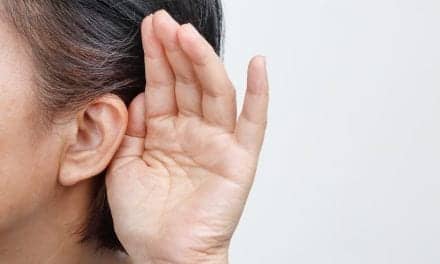Washington, DC — The Better Hearing Institute (BHI) has joined with the National Heart, Lung, and Blood Institute (NHLBI) and the American Heart Association (AHA) to promote American Heart Month in February and to celebrate National Wear Red Day on February 4, 2011.
On National Wear Red Day, the first Friday of each February, Americans nationwide wear red to show their support for women’s heart disease awareness.
BHI is educating the hearing health community and the people it serves about heart disease, with a focus on the connection between cardiovascular health and hearing health.
As part of the campaign, BHI has made available a free and confidential online hearing test at www.hearingcheck.org to help people, including those with heart disease, determine if they need a comprehensive hearing check by a hearing professional.
The inner ear is extremely sensitive to blood flow. BHI said that studies have shown that a healthy cardiovascular system has a positive effect on hearing. Conversely, inadequate blood flow and trauma to the blood vessels of the inner ear can contribute to hearing loss.
Some researchers hypothesize that because the inner ear is so sensitive to blood flow, abnormalities in the condition of blood vessels here could be noted earlier than in other, less sensitive parts of the body.
David R. Friedland, MD, PhD, associate professor of Otolaryngology and Communication Sciences at the Medical College of Wisconsin in Madison, at the 2009 Combined Otolaryngology Spring Meeting hypothesized in a study that low-frequency hearing loss may be a potential marker for predicting the presence or potential development of cardiovascular disease.
In another retrospective study published in the June 2010 issue of the American Journal of Audiology, Raymond H. Hull and Stacy R. Kerschen reviewed research that has been conducted over the past 60 plus years and found that the negative influence of impaired cardiovascular health on both the peripheral and central auditory system and the potential positive influence of improved cardiovascular health on these same systems has been found through a sizable body of research.
Furthermore, according to research in older adults, the prevalence of suffering from various degrees of hearing loss is 54% greater among those who have a history of heart disease than in the general population. The study also indicated that individuals who exercised at least once a week saw a 32% reduction in the risk of suffering from hearing loss, when compared to sedentary people.
Sergei Kochkin, PhD, BHI’s executive director, said in a press release, "Our participation in American Heart Month and National Wear Read Day enables the hearing health community to make an important contribution to saving millions of lives. This is an opportunity to highlight the connection that heart health has on hearing health and to empower people with that knowledge. People with heart disease should not have to contend with the additional toll that unaddressed hearing loss takes on their quality of life."
SOURCE: The Better Hearing Institute



